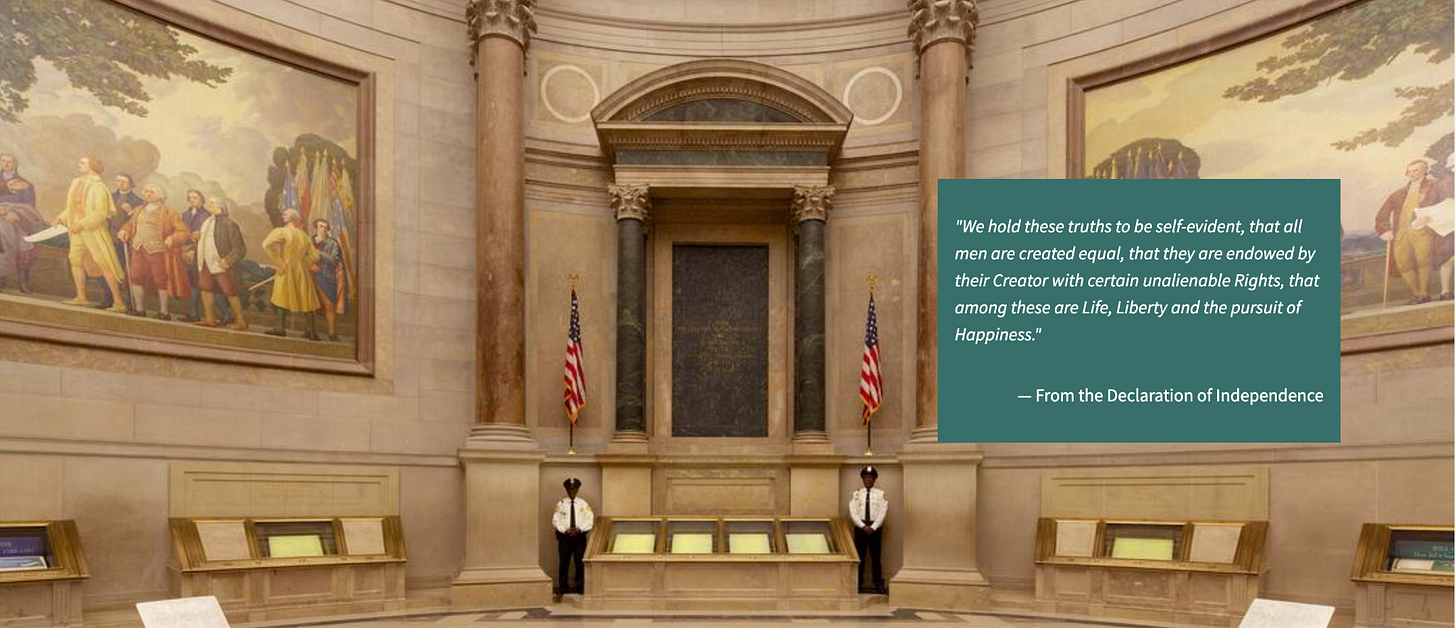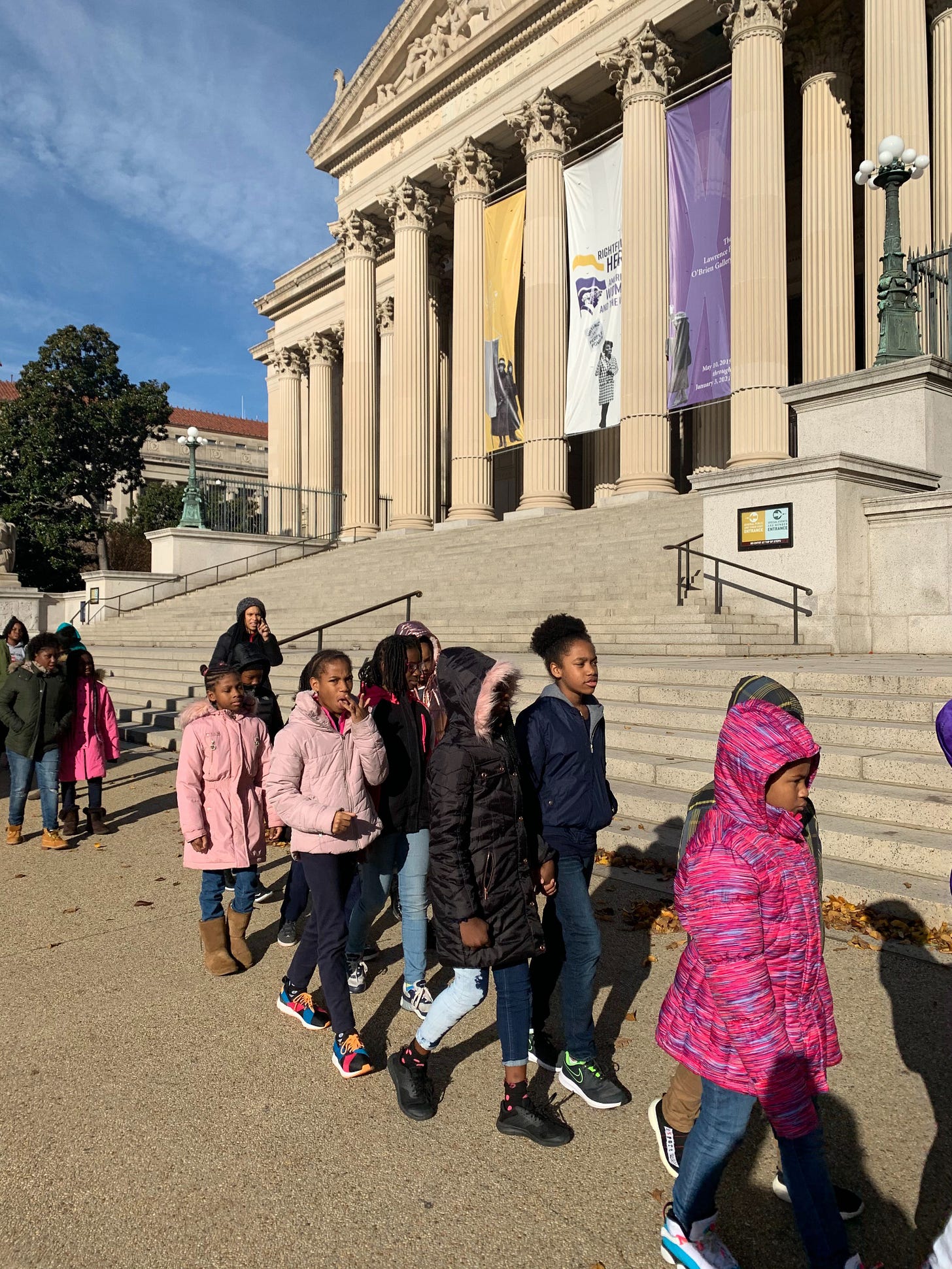Today is Constitution Day
Teaching Moment or Lost Cause?
👉 This begins a series of Forza notes that will, over the coming months, spotlight tools, stories, and initiatives to prepare us for America’s 250th anniversary.
You Cannot Love What You Do Not Know
There’s a direct line between a self-governing society and the knowledge its citizens hold about that society. Without it, neither liberty nor order can endure.
Politics and political affiliation aside, being dedicated to the principles that inspired our nation’s founders, that sent into battle millions of troops since its inception to defend it, and made it the envy of the world, is a uniquely American trait. It’s what Alexis de Tocqueville observed about America’s uniqueness: that its people connected liberty with responsibility, and knowledge with self-governance.
But who is Tocqueville—and how many Americans today know why he was fundamental to our story? How many can answer the question, Why America? As I’ve often written, quoting the late historian David McCullough, one cannot love what they do not know. And one cannot effectively support, debate, defend, or participate in what they do not love.
That is what patriotism is all about. Presidents over our history have often spoken about their love of country. That, too, is patriotism.
Barack Obama, in the midst of the 2008 campaign, paused to reflect on the meaning of patriotism—honoring the first patriots and those then serving in Iraq and Afghanistan. He reminded us that love of country is not partisan, but binding.
George H.W. Bush believed patriotism meant civic duty, sacrifice, and community service—values he embodied through decades of public life.
Ronald Reagan gave us the lasting image of America as a “Shining City on a Hill,” urging us to defend and advance freedom “with every fiber of our being.”
Reagan put it best:
“These were not just images of a bicentennial; they were reminders of our birthright of freedom—and of generous, fervent patriotism that burns in America.”
As the 250th anniversary of our nation approaches, can we rekindle that same commitment to knowledge and patriotism?
Most of our presidents could, because they were steeped in civics and history. They knew the Declaration, the Constitution, the preamble, and what those words meant for their office and their country. Today, too few of our students are given that same grounding.
“Igniting a Flickering Spark”
Speaking of the optimistic 40th president, the annual Reagan Institute Summit on Education (RISE) kicks off tomorrow, “guided by President Reagan’s enduring belief in the power of education to ‘ignite the flickering spark of knowledge,’ this year’s theme and focus is rightly centered on taking a bold approach to solving our most pressing issues - from the states, where they belong and where state leaders should know our votes and scrutiny will be governed by their action on their biggest financial ticket - education.
I’ll be talking about how we help get there, starting with parents.
You can register virtually here.
Big Announcement Today
Education Secretary Linda McMahon is convening the inaugural meeting of the America 250 Civics Education Coalition, and I’m heading there shortly. Led by the America First Policy Institute, the Coalition’s goal is simple but profound: to restore teaching of the founding principles—the Judeo-Christian values of equality and liberty that have sustained this Republic. These should not be controversial. They are the heart of the American promise: that all men are created equal, endowed by their Creator with certain unalienable rights.
Subsequently, the Department of Education will make grants available to help schools and educators restore fundamentals to the classroom—knowledge many of us once learned, but which for most has long been forgotten.
Also today, for the first time in decades at the National Archives, the entire United States Constitution will begin to be on display to commemorate 250 years of American freedom. Educators and leaders from around the nation will gather to see:
The original four-page Constitution and the Bill of Rights
Seventeen Constitutional amendments displayed in the Rotunda
The rarely seen fifth page of the Constitution, signed by George Washington
The National Archives is the official keeper of the nation’s founding documents. Accessible online, it holds the Declaration, Constitution, Bill of Rights, and countless records that every American should know firsthand. Who can forget our own archive of freedom? You can go online, but honestly, if you haven’t been to the National Archives lately or ever, book your trip now. This is one opportunity no citizen, and particularly no educator, and no student, should miss.
3 Powerful Resources
Information is power. Just sharing these sources with your friends, colleagues, family, students, etcetera can wield a ton of benefit to our fragile nation. Get going. Take two minutes. Just cut and paste these, or forward Forza today and just dig in to some pretty extraordinary resources that others have spent collective years developing and providing, all for our benefit:
Constitution 101 – A free online course created by the National Constitution Center and Khan Academy, featuring leaders across the spectrum who explain our nation’s founding documents.
The Bill of Rights Institute – A hub of open resources that helps educators and students alike understand and practice the skills of citizenship.
The Jack Miller Center – Offering research, teaching resources, and gatherings such as its National Summit on Civic Education, it equips leaders and educators at every level to strengthen civic understanding.
There are so many more that I will highlight in the coming weeks and months In the weeks leading up to America 250, because, well, I’m a geek about those kinds of things, and because our nation needs to know itself better.
On this Constitution Day, let’s resolve not to treat civics as optional, or patriotism as outdated. Let’s instead commit to knowledge, responsibility, and excellence — and make it a teaching moment, not a lost cause.
My very best to you - Jeanne


